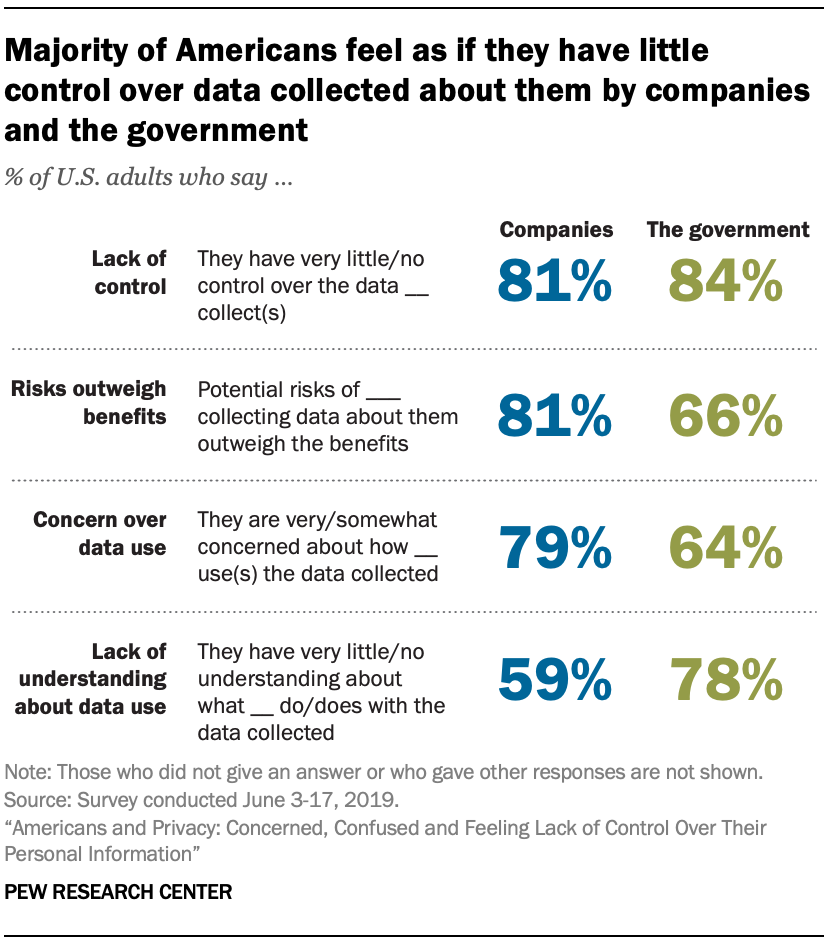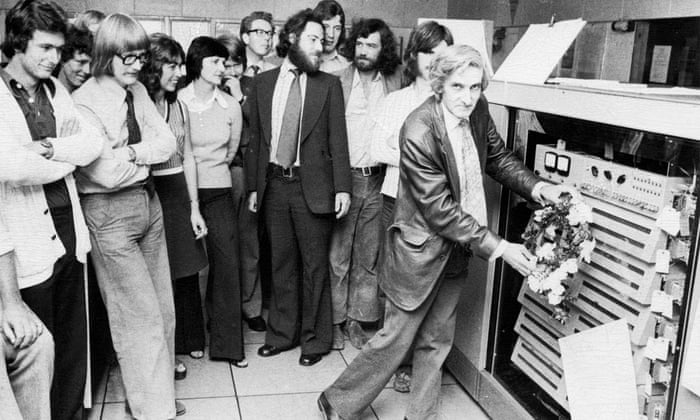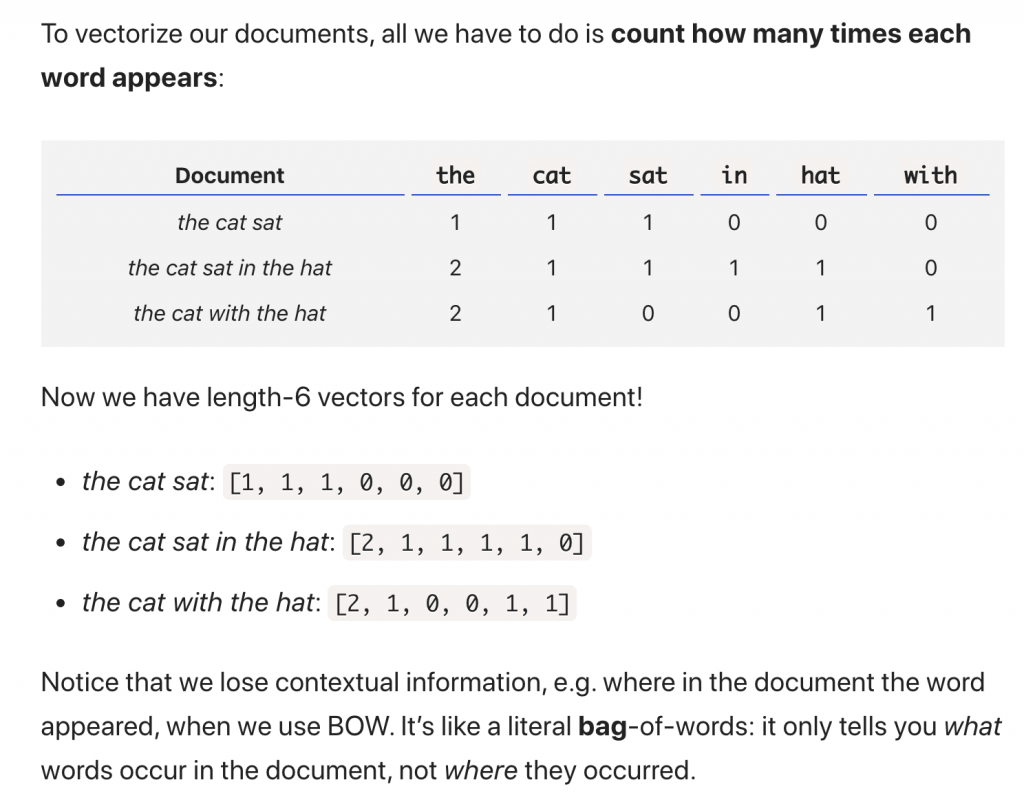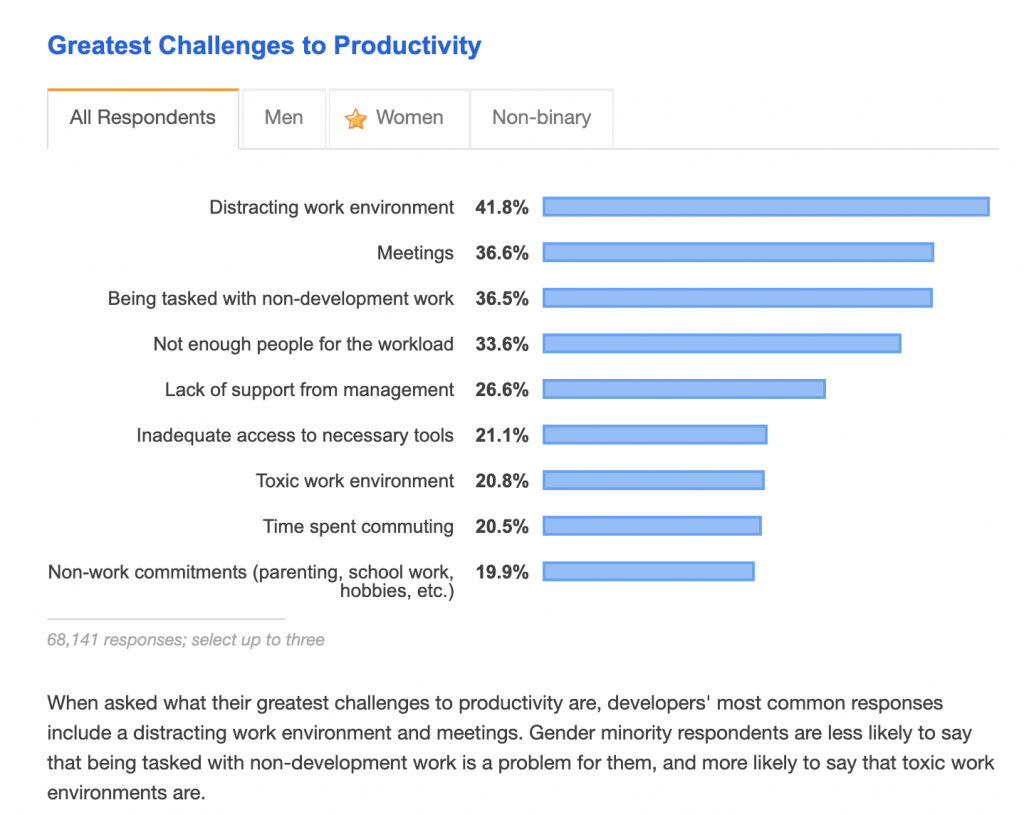Sections
The Lost Decade
[avatar user=”malm” size=”small” align=”left” link=”file” /]
We are now into 2020. The year that Michio Kaku wrote about in Visions as a key staging point in our journey to the future. We seem further away from that that at any point over the last 50 years since the promise of the Moon Landings. As if to underline this point, 2019 in review proved to be a depressing affair for many commentators with few able to make a convincing case for much positive to take away:
Impeachment. Brexit. Greenland. Can we say anything good about this year? Nah.
The whole 2010s feels like a decade in which we lost our way in tech. From climate disaster to the failure of the Arab Spring through machine learning bias to the role of Facebook in the US election of 2016, so much that was supposed to usher in the future has gone badly wrong. Politically we went from the wan technocratic neoliberalism of Obama and Brown in 2010 to a rampant populist nationalism on a march in 2020 with nobody seemingly able to stop it. Trump and his ilk are destroying language, importing maskirovka to the US:
I haven’t seen any articulate Trumpists anywhere … It is hard to ignore once you have noticed this inability to communicate. Even on Twitter and Facebook the only complete sentences that appear are nearly identical. If they weren’t actually copied from RT or an American equivalent they seem to have been transcribed from a Fox News script. The endless repetition of simple lies become implanted in people’s minds.
And they are getting away with it as “the speed of propaganda is now instance and it’s not used simply to distort the present” but to create multiple branches of reality cut off from each other, arguably more inverted totalitarianism than the more conventional form. The result is so confusing that future generations are likely to learn nothing at all:
I am hoping for history to condemn Trump and for that condemnation to be universally validated. That will never happen. History isn’t well enough right now to pull that off. It’s not coming to save us.
Edward Luttwak foresaw all this 25 years ago in this essential read in LRB on why Fascism will be the wave of the future. Luttwak’s core analysis that personal economic insecurity would be the driver for a new form of fascism enabled through the ballot box is exactly what has come to pass in the 2010s:
A vast political space is thus left vacant by the Republican/Tory non-sequitur, on the one hand, and moderate Left particularism and assistentialism, on the other. … And that is the space that remains wide open for a product-improved Fascist party, dedicated to the enhancement of the personal economic security of the broad masses of (mainly) white-collar working people. Such a party could even be as free of racism as Mussolini’s original was until the alliance with Hitler, because its real stock in trade would be corporativist restraints on corporate Darwinism, and delaying if not blocking barriers against globalisation. It is not necessary to know how to spell Gemeinschaft and Gesellschaft to recognise the Fascist predisposition engendered by today’s turbocharged capitalism.
Umair Haque suggests it is inevitable this will end very badly:
We are caught in a death spiral now. A vicious cycle from which there is probably no escape. The average person is too poor to fund the very things — the only things — which can offer him a better life: healthcare, education, childcare, healthcare, and so on. The average person is too poor to fund public goods and social systems. The average person is too poor now to able to give anything to anyone else, to invest anything in anyone else. He lives and dies in debt to begin with — so what does he have left over to give back, put back, invest?
So what can be done? Protest is still an option. The prospect of feet on the street still terrifies tech moguls. A global anarchy revival challenging the one in the late 1960’s for intensity is a real prospect for the 2020s if a mass movement against the new status quo emerges:
the internet — in both reach and presentation — has flattened information and essentially destroyed the authority that print used to have on words. Facts. History.
Each of us needs to think critically and independently. To think for ourselves and ask what we can do to help. Tech solutions alone cannot get us out of here. If nothing else, these newsletters should have provided enough cautionary tales from the pre-internet era to the digital panopticon for readers to understand there are no easy answers. In the end, love and empathy for other human beings may be all we have and all there is:
So I want to ask you the same question I ask myself every time I’m entranced by the beauty of this world: what does it mean to love this place? What does it mean to love anyone or anything, in a world whose vanishing is accelerating, perhaps beyond our capacity to save the things that we love most? … We are walking into great darkness, and the light that guides us must come from within. … Our goal can and must be far more expansive than that: to use our leverage this week, this month, this year, this decade as best we possibly can. That gives the widest swath of life a chance, and it’s also the only thing that gives humans a chance, because it’s been a very long time since we’ve been nimble, cooperative, and knowledgeable enough about the natural world to survive the diminished Earth that we know is coming.
What we do matters.
We cannot save the world. We can save a great deal. How much, depends on us and us alone. That is our burden, and our greatest gift.
Latterly both the Stoic teachings of Epictetus and Jaz Coleman’s magnificent masterpiece, Magna Invocatio, have been providing consolation. Euphoria reimagined from dark protest to gnostic epiphany offers an inspiring vision of human imagination:
Climate Catastrophe
The shadow of an unfolding climate catastrophe loomed large over the 2010s. David Wallace-Wells in many ways more so even than Greta Thunberg is its prophetic thought-leader. In this interview with Rolling Stone he makes clear human progressivism is a relatively recent myth:
The notion that history encodes progress, however erratic, is something that may appear to future generations a projection of impossible naivety and narcissism. Our sense that every generation is going to live differently, let alone better, is really a projection of the last couple hundred years in the West. I think it is quite possible that we will look back on it — as soon as 50 years from now — as a really weird anomaly, this strange idea that we ever expected that the world could continue providing ever more abundance for us.

As if you didn’t sense it, SUVs are even worse for the environment than you ever imagined.
SUVs are the second-biggest cause of the rise in global carbon dioxide emissions during the past decade. Only the power sector is a bigger contributor.
Privacy and Surveillance
A leak from China exposes the reality of China’s Uighur vast prison complex. The directive for the guards is apparently to “allow no escapes”. We’ve been here before.

If you think it’s not your problem, it’s already happening at an airport near you if you’re in the US. And at home where the nondescript doorbell is becoming the latest frontline for disruptive domestic surveillance and the source of a growing privacy battle. Ordinary people in the US seem to be concerned in a generalised sense but also confused about what it means for them personally:

The irresistible rise of a digital totalitarianism powered by computer vision seems to be a probable destination for many nation states in the coming decade. However it may not necessarily result in the supposed outcome that many assume of all-powerful and dominant state control of the masses. This absorbing post explains why:
the conjunction of AI and authoritarianism (has someone coined the term ‘aithoritarianism’ yet? I’d really prefer not to take the blame), will have more or less the opposite effects of what people expect. It will not be Singapore writ large, and perhaps more brutal. Instead, it will be both more radically monstrous and more radically unstable.
One country that may have some answers is Finland. CNN profiled the admirable efforts Finnish authorities are making to educate their youth to counter fake news, trolls and other digital dangers.
Artificial Intelligence
Jeff Dean of Google on ML trends in 2020 including edge computing, tackling climate change and machine learning model bias.
In news that passed by almost unnoticed, Go World Champion Lee Sedol who fought a memorable battle with Google Deep Mind’s Alpha Go has given up being the ghost in the machine and retired asserting that the machine “cannot be beaten” by a human.
Francois Chollet has a more skeptical perspective on the claims made for progress towards AGI (artificial general intelligence) in an excellent paper entitled “On the measure of Intelligence“. In it he proposes a new benchmark, the Abstraction and Reasoning Corpus (ARC) as a better way of assessing AI relative to human fluid intelligence “built upon an explicit set of priors designed to be as close as possible to innate human priors“:
We note that in practice, the contemporary AI community still gravitates towards benchmarking intelligence by comparing the skill exhibited by AIs and humans at specific tasks such as board games and video games. We argue that solely measuring skill at any given task falls short of measuring intelligence, because skill is heavily modulated by prior knowledge and experience: unlimited priors or unlimited training data allow experimenters to “buy” arbitrary levels of skills for a system, in a way that masks the system’s own generalization power.
Meanwhile Yann LeCun and Gary Marcus are descending an increasingly vitriolic public spat over the different academic approaches to AI, the genesis of which lies in the AI skepticism of the latter:
GM is the root cause of the purported war between connectionists and symbolists
— Yann LeCun (@ylecun) December 1, 2019
He created it to make himself relevant.
But it does not actually exist.
Clamoring that DL should be hybridized with symbol manipulation is useless.
Showing how to do it would be useful. https://t.co/EKxnnk4dzw
All the more reason to sit up and listen to Douglas Rushkoff on how to retain our humanity in the midst of the disruption of humanity that AI represents.
At the same time, it’s important to try and keep apprised of how the tech works. This excellent basic demystifier on the bag of words (BOW) model is a good starting point for explaining how word vectors work. It references the Python keras library which was developed by Francois Chollet.
Amazon
Amazon Video cannot be stopped or reasoned with. They will just continue until they win. Their recent breakthrough into Premier League live is a case in point. It was by all accounts a huge success.
Amazon are bossing it in eCommerce too in the UK with almost 1 in 3 eCommerce sales being transacted through Amazon.
Social Media
Sacha Baron Cohen in a widely reported speech commented on how tech companies built the greatest propaganda machine in history one which Goebbels could only have dreamed of. His outspoken remarks radiated a surprising degree of conviction and came across as earnest but were dismissed by several analysts as ultimately unoriginal.
The New Yorker profile Roger McNamee, who made a fortune from Silicon Valley startups and is now turning against them and holds similar views to Cohen. He has argued that:
the social-media business model thrived on divisive rhetoric: the more extreme the content, the more users shared it; the more the algorithms amplified it, the more ad revenue was generated.
We need to recognise that the human mind is singularly ill-equipped to handle the pace of development of social media and Internet technology:
I keep questioning my sanity, then I realise that human beings have just not yet evolved to deal with the mental capacity of social media pic.twitter.com/ZYKsRoHylp
— Hannah Peel (@Hanpeel) December 1, 2019
Technology
How to go from zero to $1 million in less than one year. The capitalist myth/dream can be yours if you follow these five guidelines. There’s nothing particularly mind-blowing here:
1. Don’t Rush to Raise Capital
2. Don’t Rush Into Development
3. Start Small …and Boring
4. You Need to Obsessively Tweak
5. Invest in Customer Success
India is changing the rules of the game for Western companies as it pivots towards digital sovereignty. It’s tilting the playing field in favour of home-grown companies.
Engineering
An epic thread on the drop-in replacement fallacy epic thread:
The drop in replacement fallacy promises that you can make technical improvements to a system without having to understand the business and product problems the system is solving, without having to to talk with people who aren’t like you, and without making hard decisions
— kellan 🌊 (@kellan) November 13, 2019
Meetings and office distractions are majorly impact on developer productivity.
That a mute nude photo has been a mainstay for tech image test benchmarking for decades speaks volumes.
Fascinating example of how being transparent about engineering failures can be a distinct plus where the managing director of Network Rail Southern Region published a COE (Correction of Error) style explanation complete with FAQs on a recent major outage at London Victoria and London Bridge train stations:
Our investigations show that four separate systems, from one that is 18-months old, to another that is 10 years old, locked themselves out to stop themselves from being damaged by the surge.
These include the signalling control system, an advanced reconfigurable power network and an older control system called TDM (time division multiplex) that allows control centres to talk to signals on the ground.
Increment is a new online magazine that is also available in print form. It seems like an essential read for anyone interested in Engineering leadership:
While there are a lot of materials about how to write code and how to deploy distributed systems, there’s much less about how humans can work together more effectively to achieve their goals faster. This stuff is complicated, and it matters. Version control, code review, pager rotations, DevOps practices. Increment exists to provide practical and useful insight into what effective teams are doing so the rest of us can learn from them more quickly.
Programming
The Guardian published an obituary of computer science pioneer Tony Brooker who designed and implemented the world’s first high-level programming language, the Manchester Autocode, in 1954. Here he is placing a wreath on an early computer in 1972:

A short introduction to genetic algorithms. The skill or art here lies in choosing the ‘genes’ correctly in the first place to allow mutation to occur.
RealPython on Python descriptors and how they help you understand decorators.
Culture and Society
An essential post in The Guardian from a Scottish doctor on what he learned from working with suicidal patients over the years. The ones he couldn’t save loom large in the narrative and linger in the memory long afterwards, ghosts haunt a melancholic Forth Bridge. You’ll never see it the same way again.
Police said each year between 20 and 25 people make the same leap from .. the centre of the bridge – a total of more than 800.
Only three are known to have survived.
The jungle prince of Delhi reads like magical realist story straight out of the pages of Marquez or Rushdie with an all too sad and mundane secret behind the sphinx.

Vox pop on what it means to be mixed race in Britain today.
2019, the year that racial ambiguity became commodified.
The One Laptop Per Child program also known as OLPC was supposed to revolutionise computing literacy in the developing world. It was hugely ambitious, laudable in intent and utterly failed. This thoughtful post tries to understand why. An inability to understand the reality of those the program was aimed at was a major factor:
Many people working for OLPC really wanted to do good in the world, but they got caught up with the charisma of this project. They got blinded by it. They didn’t see that their view of the world was very narrow.
Quartz obsession on Star Wars points out how heavily it was influenced by George Lucas’ interest in heroic legends from other cultures:
To create the Star Wars universe, George Lucas drew from cultures around the world, both real and imagined.The word Jedi is rooted in the Japanese word jidaigeki 時代劇 (“era drama”); East Asian influence is evident in the movies’ look and ethos. For the Empire, Lucas drew from one of modern history’s most notorious regimes, and many visual cues reference the Third Reich. Ever conscious of film history, Lucas deployed stylistic elements from Leni Riefenstahl’s infamous Triumph of the Will (1935), an influential film that was also Nazi propaganda.
Some scenes in the heavily from Hollywood classics that came before it like Ben Hur.
And again on “how headphones are changing music” by amping up the bass and the confessional style:
“there is a way that people are thinking about how they are [recording] their vocals—it may be intentional or subconscious—but it really does feel as though it’s made to experience one on one in an intimate setting as opposed to in a giant theater.”
The Brexit Election
Frankie Boyle published his excoriating views on the “the most important election in a generation” a week before it happened suggesting that if the Tories were driven by:
a kind of mutant nationalism that insists all our infrastructure has to be owned by other countries, has nowhere to go but into an asset-stripped, deregulated wasteland. I don’t know how anyone votes for that, or what happens after they do. British people don’t get on well enough to form militia.
Pankaj Mishra in The Guardian like Boyle also saw the Tories surging driven by a militant patriotism, the last roar of English nationalism. This time of course there will be no Empire to call upon:
the dwindling material basis of an ex-imperialist country that is unable to break, in a globalised world, with its antique assumptions of power and self-sufficiency, and whose fundamentally cynical Bagehotian mode of politics, in which the will of the few was passed off as the will of the many, is broken, unable to innovate and deal with change, or defuse the anger of those victimised for so long by social and economic inequity.
And Captain SKA remixed his tune 2 and half years on:
In late 2019, however, these interventions felt too late to make any impact on the inevitable. Instead Johnson’s simplistic message that it was time to “Get Brexit Done” did cut through large swathes of the population fed up by three years of drift. Many of them were forgotten working class people that had nowhere else to go like like the people in Stoke interviewed in this devastating and depressing unherd.com post battered by Thatcherism, austerity and ecommerce:
Stoke is the victim of a triple economic crisis and a triple identity crisis. Its pottery, steel and coal-mining industries were among the earliest victims of the de-industrialisation of Britain which began under Margaret Thatcher in the 1980s. The city’s public services have been hollowed out by the austerity drive of the past decade. Its town centres, stricken by the collapse of traditional shopping habits, range from the depressed to the derelict.
Before the election Abby Innes of the LSE had suggested the UK General Election would be a defining moment leading to either the death of neoliberalism or the end of democracy. If so, then neoliberalism won handsomely and the Tories managed the quite remarkable trick of rebranding the same socially divisive supply-side side economics that fuelled Stoke’s decline in the 80’s and that most assumed had been interred following the Labour landslide of 1997:
Electoral success for the Conservatives will complete the capture of state authority by private business actors and consolidate the Conservative Party as a self-serving broker, first and foremost, between the residual powers of the state and the now largely unrestrained economic power of large private business and increasingly extractive financial interests.
The Tories won and won big. So how and why did it happen? Jeffrey Sachs suggested the UK’s electoral system failed and that proportional representation would have produced a very different result:
In total, the 11 parties received 98.6% of the vote, with dozens of smaller parties accounting for the remaining 1.4%. The eight parties campaigning to remain or hold a second referendum received 52.2% of the vote, while the three parties campaigning for Brexit with no second referendum received 46.4% of the vote. Yet, the three pro-Brexit parties took 373 seats, compared to just 277 seats for the parties seeking to remain or hold a second referendum.
Umair Haque criticised the left for having enabled a situation where “the working class is being captured by the hard right“.
Over in America, Evan Davis in The Hill asserts that Trump’s culpability is greater than Nixon’s. The fact remains that he is almost certainly going to be exonerated by a Republican-led Senate fearful of being eclipsed by demographic trends. Yoni Applebaum, senior editor in The Atlantic, in an post called How America Ends goes into detail about why the Republicans are so spooked:
When a group that has traditionally exercised power comes to believe that its eclipse is inevitable, and that the destruction of all it holds dear will follow, it will fight to preserve what it has—whatever the cost.
The Economist interview with historian James Traub echoes the opening theme of the newsletter in suggesting that the future may well be built around “populist illiberalism“:
liberalism … may be defunct. Perhaps the coming age will feature populist illiberalisms of the left and right, with one side or the other essentially disenfranchised. (The British election looks something like that.) That’s a very ugly prospect.


